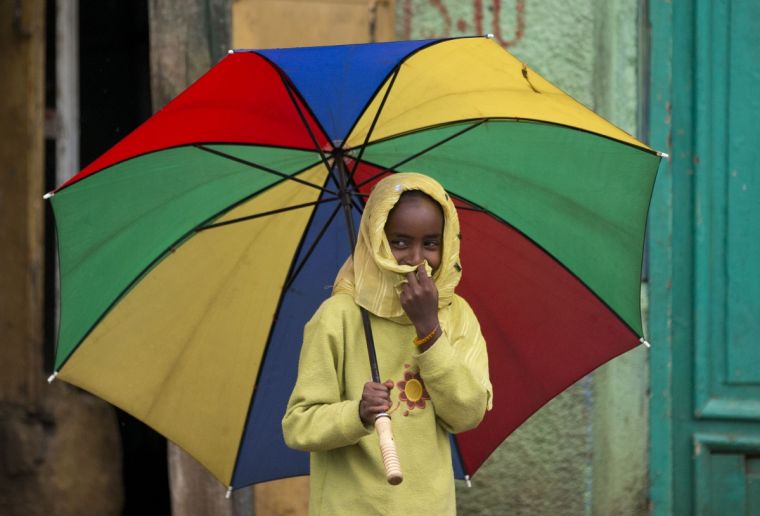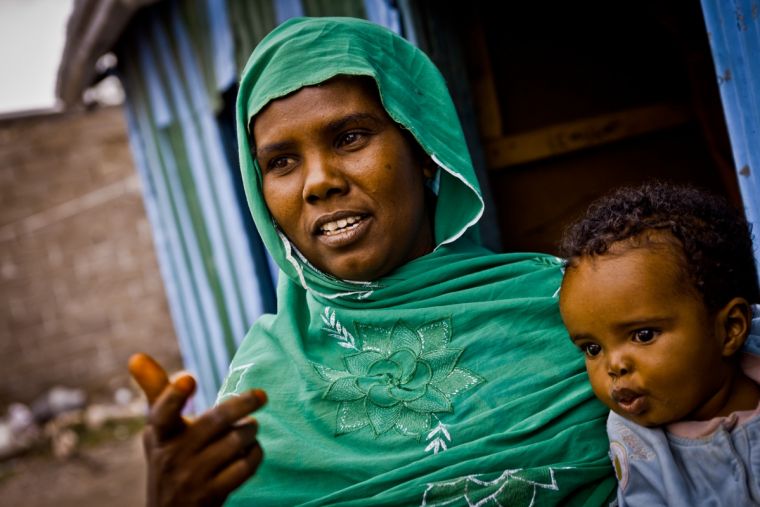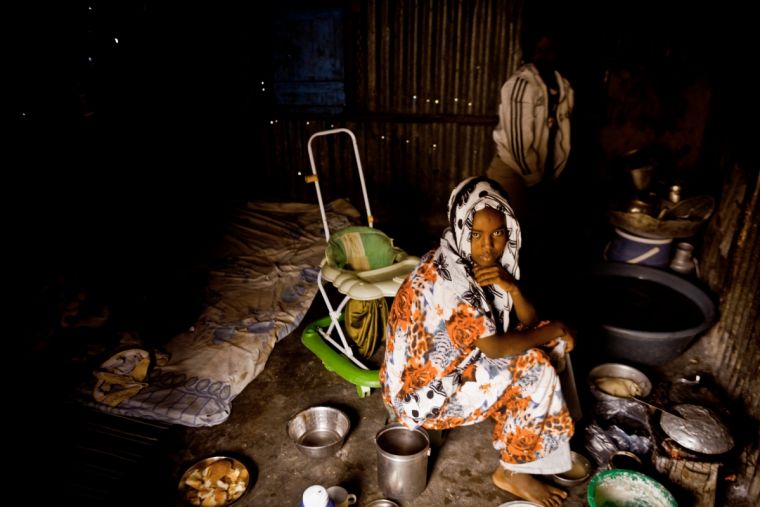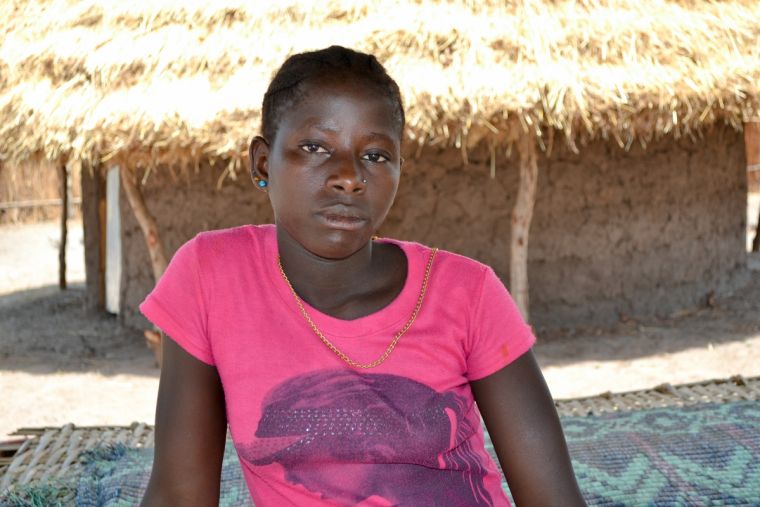UK must do more to end female genital mutilation

World Vision warns the UK is not making enough progress on eliminating female genital mutilation (FGM).
The warning comes in a report from the Christian development agency timed to coincide with the International Day of Zero Tolerance on Female Genital Mutilation.
FGM is a widespread problem in many parts of Africa, though shockingly is it also prevalent in some diaspora communities in the UK. World Vision estimates that 24,000 young girls under the age of 15 are at risk.
Although FGM has been illegal in the UK since 1985, not a single case has ever been brought to court.
The report, 'Tackling FGM in the UK: Lessons from Africa', thus aims to highlight just why the UK is struggling to make progress with eliminating the practice here, and looks to the success stories in poorer nations as examples of how the issue can be addressed domestically.
FGM is also known as female circumcision, or female genital cutting, and refers to any procedure that removes part or all of the external female genitalia, or alters or injures the genital organs in any way without medical reason.
It is regarded as a rite of passage into womanhood by many African cultures, and approximately 100 to 140 million young women have undergone the dangerous practice in total - around three million each year. It is intensely painful, and not only puts girls at risk of severe bleeding and infections but also infertility, severe pain during sexual intercourse, and complications in childbirth.

However, many believe that it makes girls more desirable for marriage, less clumsy, and gives them a more gentle temperament. It is usually carried out on girls before their tenth birthday.
Despite this ingrained cultural attitude, however, countries such as Ethiopia, Somaliland and Niger are successfully tackling the problem of FGM. World Vision conducted research into their methods to explore how the UK might be able to adopt similar practices and end incidents of FGM altogether.
Researchers found that the UK's focus on changing the legal system, though important, demonstrates a lack of understanding of the root of the problem, which they say are social and cultural attitudes.
World Vision has instead asserted that it is imperative to work with local religious and community leaders to share with them the dangers of FGM and transform their views.
"Since FGM/C is driven by complex social norms as opposed to lack of knowledge, it cannot be tackled by education alone. It requires more meaningful engagement with the beliefs, attitudes and norms of communities where FGM/C takes place," the report notes.
An Ethipopian community worker explains: "A religious leader not circumcising his daughter is a more powerful symbol than imprisoning circumcisers."
The police in Ethiopia have a dedicated child protection task force, made up of support officers who build relationships within communities and look out for signs of FGM being undertaken. They work in partnership with schools, health workers and faith leaders to challenge harmful views, and put protective measures in place for the young girls who may be at risk.
In Ethiopia, the rate of FGM among women aged 15 to 49 fell from 73 per cent to 57 per cent between 1997 and 2007, which World Vision claims brings "fresh hope" to those in the UK who are actively campaigning against the practice.

Success stories include 16-year-old Dialan Baldé, from southern Senegal. Her area has had a high prevalence of FGM in the past; however through World Vision's Holistic Development Project the practice is no longer accepted.
Programme staff work with grandmothers such as Dialan's to educate the community about the health risks of genital mutilation.
"I spend every evening with my grandmother," says Dialan. "She uses that time to teach me about life. She explains things, like how to do the washing, cook and weave cotton. She teaches me how to not get pregnant. Every day it is my grandmother who manages my schedule, it is she who tells me what it is I have to do.
"My grandmother is a traditional midwife, and is always confronted with cases of women experiencing a lot of pain when delivering babies because of the female genital mutilation. This is not good. I will never advise any girl or mother to undergo or let her girls to be victims of that practice."
Fatoumata Baldé, Dialan's grandmother, is now using her experience with the development project to educate others. She is a community health worker, and says those who previously carried out FGM are following her advice. She even asks advocates of genital mutilation to watch women give birth so they can experience firsthand the devastating effects of FGM.
"The main lady in the village, who mutilated the young girls, is well-informed now about the consequences of that practice on the body of a woman. In our area we have fewer and fewer cases now. She has changed her mind, and is now actually involved in the education of girls in the local committee," Fatoumata says.

"Every time I was faced with a complication arising from FGM, I called the lady to witness the pain of the mother during the delivery. After several invitations, she realised how painful to women it was."
Idil, 11, is also living without fear of FGM as a result of World Vision's projects. Her mother, Fatiah, was forced to undergo the procedure aged 8, which caused her many physical problems. After suffering a fistula following the birth of her tenth child, she was isolated from her family and community.
When she heard World Vision was working with fistula sufferers, Fatiah sought help and after a successful surgery she has become a strong advocate against FGM. "My daughters have not had FGM, and they will not – my experience was so bad, I am determined. When we show people the problem, they will change," she says.
World Vision said that "people who contest the practices within communities can be the most powerful agents of change", and concluded in its report that the social norms perpetuated by diaspora communities in the UK must be challenged.
"There could be great value in identifying the individuals and leaders in communities who will be the most powerful agents of change; these people must be opposed to the practice of FGM/C ... From our research in Ethiopia we found that religious leaders' rejection of FGM/C can be a powerful symbol for the rest of the community.
"[We must] identify adults who can work with children, amplify their voices and be role models who stand up against FGM/C," it concludes.











